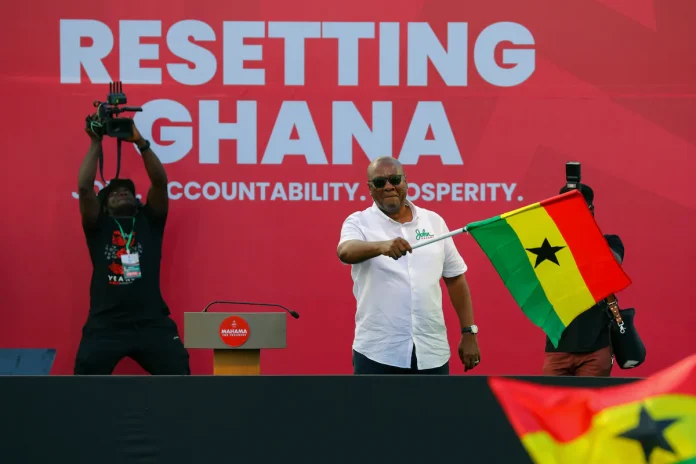Mahamudu Bawumia, Ghana’s Vice President and candidate for the ruling New Patriotic Party (NPP), conceded defeat in the country’s presidential election on Sunday. His loss signals the end of the NPP’s two terms in office under President Nana Akufo-Addo.
Speaking at a press conference, Bawumia acknowledged the people’s decision. “The people of Ghana have spoken. The people have voted for change at this time, and we respect it with all humility,” he said. He also confirmed he had called his opponent, John Mahama of the National Democratic Congress (NDC), to congratulate him on his victory.
Supporters of Mahama gathered outside the NDC headquarters in Accra, celebrating with horns and cheers. Mahama later confirmed the call on social media, expressing gratitude for Bawumia’s recognition of his “emphatic victory.”
Economic issues shape the outcome
Ghana’s economic struggles heavily influenced the election. High inflation, currency devaluation, and a national debt crisis led to widespread dissatisfaction. A $3 billion bailout from the International Monetary Fund (IMF) did little to alleviate public frustration.
NDC spokesperson Sammy Gyamfi stated that Mahama secured 56.3% of the vote compared to Bawumia’s 41.3%. “It is clear that the people of this country have voted for change,” Gyamfi said.
While the Electoral Commission had yet to release official results, Deputy Commissioner Bossman Asare indicated that regional results were still being collated. The final announcement is expected by Tuesday.
A history of democratic transition
Ghana has maintained democratic stability since 1992, with power alternating between the NPP and NDC. Bawumia had hoped to extend the NPP’s rule under the slogan “Break the 8,” aiming for an unprecedented third term. However, criticism of the current government’s economic policies hindered his campaign.
Although inflation dropped from over 50% to around 23%, many Ghanaians still felt the effects of the financial crisis. These challenges created an opening for Mahama, who served as president from 2012 to 2017 and made unsuccessful bids in 2016 and 2020, to make a strong comeback.
